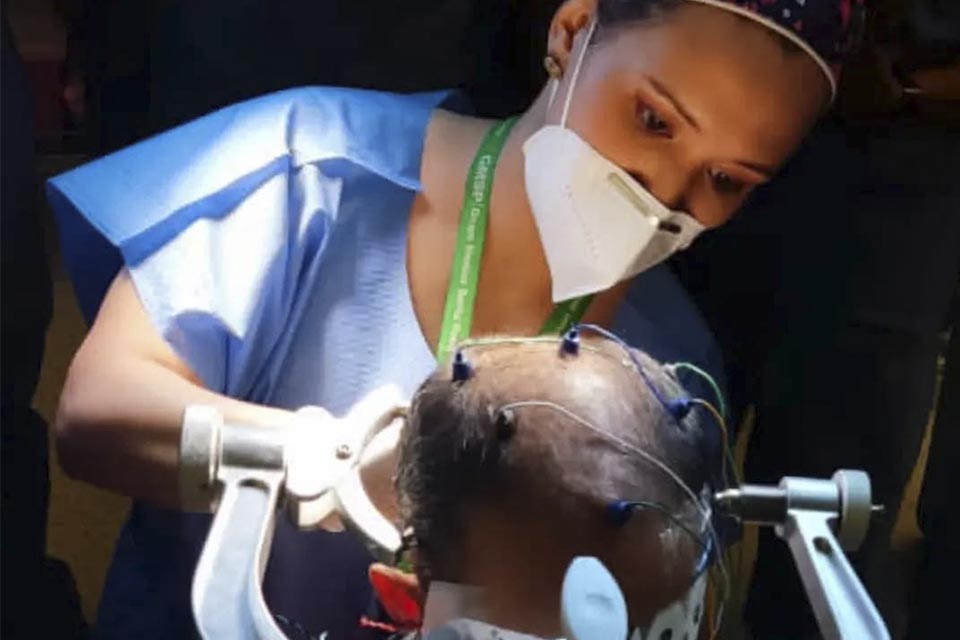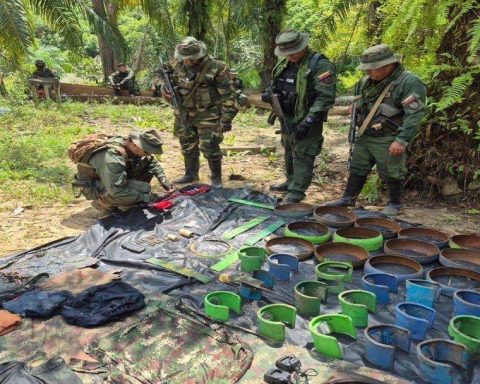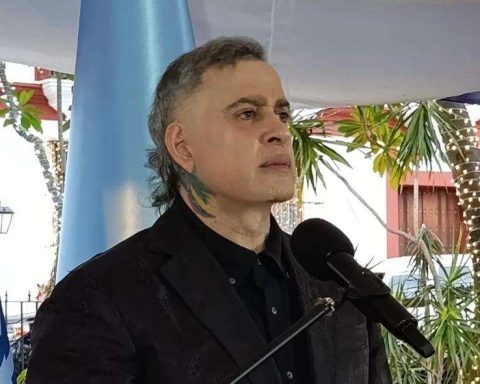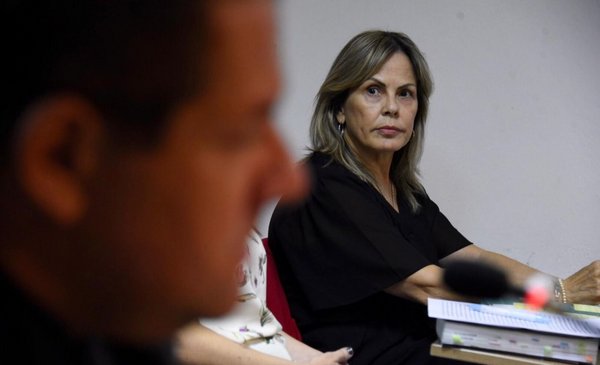Electrode monitoring in neurosurgery is not new in Venezuela, but the Santa Paula Medical Group added monitoring through electrodes in the orotracheal tube, to monitor the nerve that helps people swallow without drowning. This technique allows the patient less neurological sequelae after leaving surgery. At least 15 specialists participated in an operation to remove a tumor in the posterior fossa of the skull, headed by neurosurgeon Andreína Acevedo
Medical innovation in Venezuela is not limited to the field of research. Recently, a group of neurosurgeons used a type of specific electrodes, for the first time in the country, to operate a tumor on a patient at the back of his head.
The Dr. Andreina Acevedoneurosurgeon fellow in skull base surgery, he led the team that first used orotracheal tube electrodes to reduce neurological sequelae in an operation on the back of the skull.
The intervention was performed at the Santa Paula Medical Group on February 3. The patient was a 45-year-old man who works as a goldsmith. His relatives realized that “something was not right” because he had lost coordination, was going to the sides and also suffered from recurring headaches.
After the medical evaluation, a posterior petrosal meningioma was detected, that is, a tumor in the posterior fossa of the skull that was accessible.
Skull base operations are complex surgeries that treat tumors or vascular malformations that have a seat in the posterior fossa of the skull. In this part is the cerebellum and the brain stem, the latter connects the brain and higher cerebral centers with the spinal cord and effector organs.
Also in the brain stem are the cardiorespiratory centers that go to the lung, the heart, among other points.
*Read also: Medical innovation in Venezuela shows achievements despite minimal public investment
These types of surgeries are not conventional either because specific instruments are needed. Even the anesthesia that is provided in these cases is different from that of other interventions.
The patient, explains Dr. Acevedo, was also operated on in an unconventional position, which is the semi-sitting position, “to reduce bleeding during surgery (…) Likewise, the patient has to be evaluated beforehand by a cardiologist to find out the skills of his arterial system and if it is possible to operate semi-sitting for so many hours».
One of the risks of this surgical intervention is that the patient had brain surgery at the age of five, which left him with some long-term sequelae to his speech. Another important point is that he has a cochlear implantan electronic device that has a magnet and helps people hear.
The posterior skull base operation, with the use of electrodes in the orotracheal tube, lasted eight hours. The patient had a tumor near the brain stem. Photo: Courtesy
“Thank God, 40 years later we can offer this family a better solution (…) It is not only the human potential that is still in Venezuela, who wants to promote health in our country, but the infrastructure of the Santa Paula Medical Group that allowed us to do this,” says Dr. Acevedo.
Although the use of electrodes as monitoring pieces in operations is not something new in the country, the use and placement of an electrode in the orotracheal tube (which provides oxygen to the person during a surgical intervention) is.
«Electrophysiological monitoring has been taking place in Venezuela in recent years. Very few specialists perform it because it requires a complex study where sensory motor potentials and reflexes are monitored in the patient during surgery while they are under the effects of anesthesia”, says the neurosurgeon.
In short, explains Dr. Andreína Acevedo, the intensity of the voltage of the effector organs is monitored in real time.
The electrode that is placed in the orotracheal tube notifies the medical team if the nerves that go to the larynx and vocal cords are intact and the tube can be removed as soon as the operation is finished. Usually, in these surgeries the person comes out with the tube, sedated, and goes to intensive therapy for the first 48 hours and then proceeds to remove assisted breathing.
“This was possible thanks to a medical team of at least 15 specialists. Six highly qualified neurosurgeons, two neuroanesthesiologists, specialists in neurosurgical instrumentation, an electrophysiologist neurologist, intensive care providers and physiotherapists intervened»recalls Dr. Acevedo.
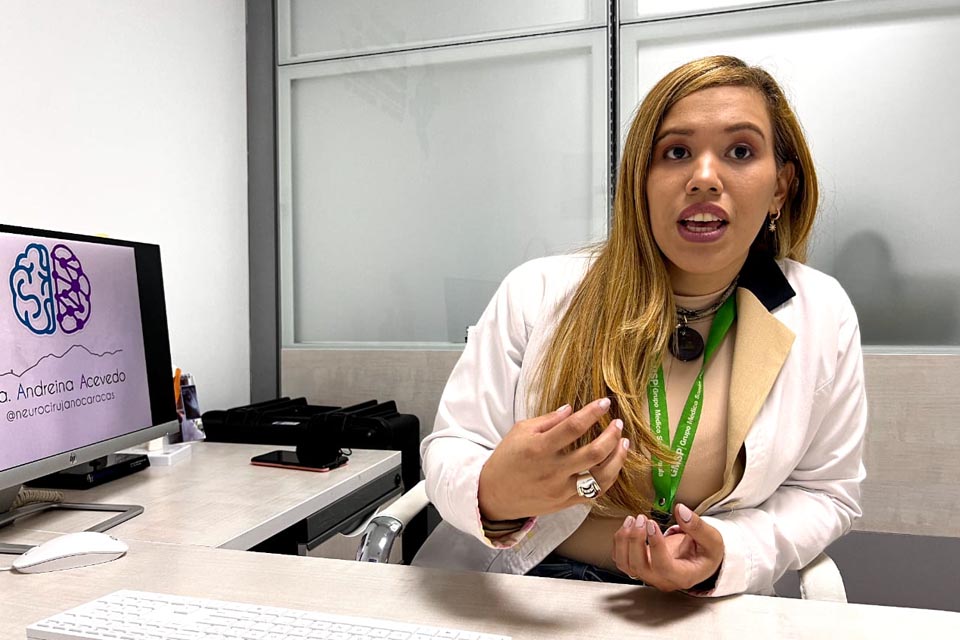
Neurosurgeon Andreína Acevedo
The neurophysiologist Thair Moreno, a specialist in intraoperative neuromonitoring, was part of the team. He trained in Brazil last year and returned to the country with these types of electrodes.
During surgery, not only was the electrode attached to the orotracheal tube, but a continuous electroencephalogram was performed to measure brain function and anesthetic depth.
The specialist comments that they not only see “peripheral electrophysiological studies but also at the central level where the somatosensory, visual, and auditory evoked potentials are (…) This electrode is the most sensitive and most specific” for this type of surgery.
In this operation, the patient was able to extubate without reflexes and came out talking to intensive care after an eight-hour operation.
*Read also: The competition for medical innovation advances and Venezuelans watch from the stands
Dr. Andreína Acevedo insists on the benefits of this type of surgery. “Even though I can’t see it, with monitoring it allows them to say that there are nearby nerves or some point not to touch, that there are certain parts of the tumor that cannot be removed. With macroscopic surgery we can even resect some parts but we are not sure that we will avoid subsequent sequelae to the patient”.
Post Views: 33
